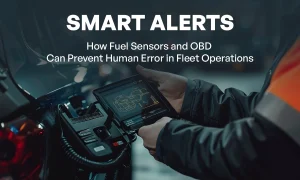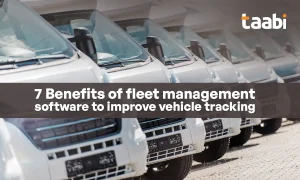1. Track Fuel Consumption Closely
2. Use Fleet Fuel Management Tools
Modern technology has made fuel control easier. A reliable fleet fuel management system helps you view every transaction, every fill-up and every possible misuse. When you have this information in real time, you can make better choices. The best fuel management system integrates with your fleet operations and gives you a clear picture of efficiency.
3. Train Drivers For Better Habits
Drivers play a major role in fuel usage. A sudden brake, long idling or fast acceleration wastes fuel. Training drivers on better habits leads to better fleet fuel efficiency. Teaching steady driving and regular vehicle checks makes a big difference. When drivers see the cost impact of their behaviour, they are more likely to adjust.
4. Maintain Vehicles On Time
Fuel waste often comes from small problems that grow bigger. Worn-out tyres, dirty air filters or poor engine tune-ups can lower fleet fuel efficiency. Regular maintenance ensures vehicles perform at their best. A healthy vehicle consumes less fuel and runs longer without problems. Preventive checks reduce downtime and improve savings over time.
5. Leverage Fleet Fuel Cards
Fleet fuel cards help you manage expenses while reducing errors. They give you control over where and how fuel is purchased. This system improves transparency and supports better reporting. With accurate data from fleet fuel cards, managers can monitor performance and improve fleet fuel savings. The extra benefit is stronger security and less chance of theft.
6. Optimize Fleet Routes
Unplanned routes or long detours increase fuel use and driver fatigue. Route optimization helps improve fleet fuel efficiency by cutting down unnecessary travel. With the help of GPS and planning software, you can find the shortest path and avoid heavy traffic. Less idle time and smarter routes mean better productivity and lower costs.
Long-Term Value of Efficiency
Focusing on fleet fuel efficiency is not only about reducing costs today. It also supports growth and reliability in the long term. With reduced fleet management fuel cost, your business can reinvest in better vehicles, advanced tools and expansion. The effort also shows your commitment to sustainability which is valued by partners and customers.








